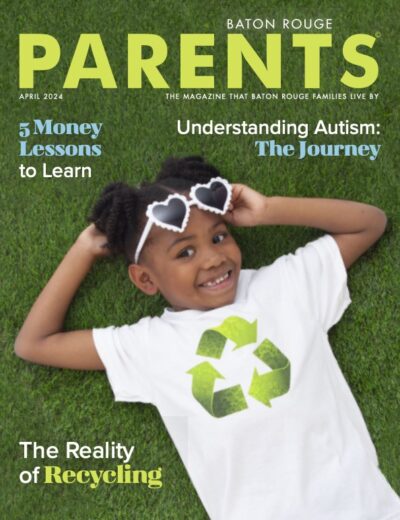
Speaking Made Easy: How to Build Vocabulary in Toddlers
As a parent, there are various milestones you can’t wait to experience when it comes to your children, notably in their early years. Parents often excitedly wait for that first crawl, the first steps, and of course, when they say those first words.
Of all the “firsts” a parent experiences with their little ones, words have one of the biggest impacts on children, affecting not only how they talk, but also read, write, and comprehend language. As a parent, especially a new parent, you may ask yourself how you could help your children with their early language skills. Well, the best way to help your child is to start early. The sooner you begin teaching your children to speak and comprehend words, the more prepared they will be.
Words and What They Mean
According to Shelley Chesney, a speech language pathologist, infants begin to understand a few early words early on. “Between six and nine months, they can look at objects and family members when named, respond to their name and begin to respond to ‘no,’” says Chesney.
Since infants begin to understand a few words during these months, this is the best time to begin teaching. As a mother of two, Ashleigh Laws heavily searched pediatric and parenting websites about this subject matter and found some exercises. “I used flashcards, games, and other learning tools to help them,” says Laws. “We would also tell them what something was before giving it to them. If they wanted something to drink, we would say it back to them the correct way, drink, cup, et cetera.”
Because of this, Laws’s children began to understand what they were saying. “They were both around eight or nine months old when they really started understanding what we were saying and being able to repeat back to us. They would know exactly what they wanted, and we just reinforced helping them say everything correctly.”
Jordan Ahrend, mother of two, shares her approach, “I always spoke to my children in complete sentences and never baby-talked. I also read with them every day. There were days when I read to them and days when I would let them tell me a story around the pictures in the book, even if it had nothing to do with it.”
Importance of Reading
According to Chesney, reading is something parents should do with their children. She says, “Hands down, the single most effective thing a parent can do to increase their child’s language, vocabulary and speaking skills is to read to them every day, starting the day baby comes home from the hospital,” she says. “During infancy, nursery rhymes are a good choice due to the rhythm and inflections of the poems. As the baby begins moving into the toddler phase and becomes more alert, you can start introducing books that are interesting to look at and touch, such as ‘touchy feely books’ with pictures of animals with different textures of fur. During this time, you can stop reading the words on the page and just talk about and interact with the pictures and textures.”
With this method, Chesney saw an improvement in her children’s vocabulary. “My husband and I read to them almost every night as part of their bedtime routine and later experienced consistent ‘has a great vocabulary’ comments from their teachers.”
Each Child is Different
While there are techniques that parents can follow to help their children with their language skills, parents also need to be cautious. With her second child, Laws noticed that her son wasn’t developing his speech the same way his sister had, despite the same exercises.
“When my son started speaking, we realized there were differences. My daughter would always try to speak for him instead of allowing him to do so,” says Laws. “He was having problems with the way he would articulate his words. ‘F’, ‘S’, and ‘V’ words were very complicated for him to say. Because of this, we put him in speech therapy, which has done wonders for him.”
Ahrend also noticed a difference between her daughters. With her oldest, Ahrend had six months with her and was able to teach her more. However, with her youngest, she didn’t have the same amount of time. “I only had three weeks at home with my youngest,” says Ahrend. “If possible, I would have taken a longer leave to be with her more.” Because of this, she noticed that it took her younger daughter a little longer to have full conversations and comprehend.
“While my oldest was able to talk in full conversations and comprehend what she was saying and being said at 18 months, it took my youngest about two years to be on that level,” she explains.
Both mothers had their own way of teaching their children vocabulary, and while they both accomplished what they did with their children, both agree that there is always room for advice. “Just know that every child learns at his or her own pace,” says Laws. “Keep repeating words to them and showing them new things. They learn really quickly what they want and need.”
Ahrend suggests that in order to build vocabulary, there must be a balance when you teach your children. “It’s great to find ways to teach your children about words and speech,” says Ahrend, “but there must be a balance. Don’t overdo it.”





